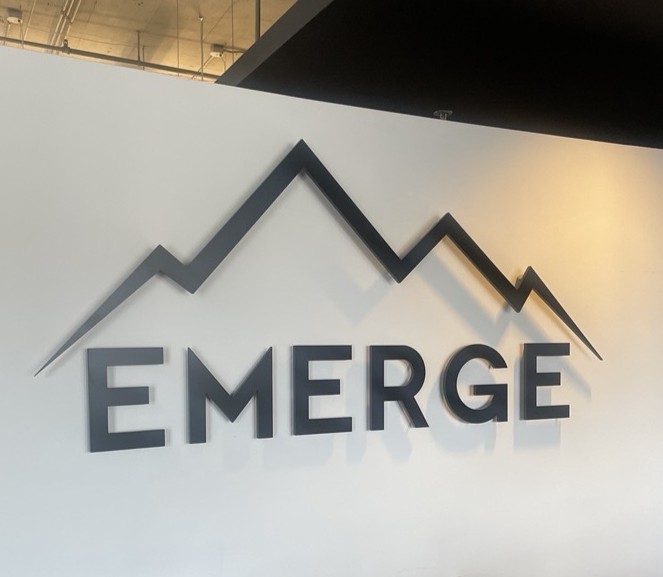Change is the only constant in the employment industry, driven largely by technological advancements and shifting workforce dynamics. To thrive, businesses must adapt to these changes. A striking statistic that illustrates this transformation is that 87% of HR leaders believe technology is fundamentally altering how they find and hire talent!
To remain competitive, HR leaders must stay at the forefront of an evolving industry, and here’s what we are seeing at Emerge.
1. Technology Trends Transforming Staffing
Artificial intelligence (AI) and automation are transforming outdated staffing processes. AI significantly impacts sourcing, screening, and candidate matching, making these processes more efficient and reducing human bias.
AI-powered tools, such as applicant tracking systems (ATS) and chatbots and other content-producing platforms, streamline tasks that traditionally have required extensive human effort. However, it’s essential to maintain human oversight in AI-driven processes to ensure fairness and avoid perpetuating biases. AI should complement human judgment, not replace it.
Meanwhile, data-driven recruitment is another technology-fueled wave that is reshaping the industry. Predictive analytics and talent analytics platforms help forecast talent needs and optimize hiring decisions. Companies utilizing data to refine their hiring processes often see improvements in efficiency and candidate quality.
2. The Changing Nature of Talent
Headlines abound regarding a rapidly evolving workforce, with remote work and distributed teams becoming the norm. The rise of the gig economy has transformed staffing, providing businesses with access to freelance talent for specialized tasks. As such, skills-based hiring, focusing on specific competencies rather than traditional qualifications, is gaining traction. This small but meaningful shift helps address the skills gap and ensures that the right talent is matched with the right roles.
Of course, demographic changes are also impacting the workforce. The aging Baby Boomer population and the entry of Generation Z into the workforce bring unique challenges and opportunities for Clients, Companies, and firms like Emerge. Organizations must adapt to these shifts by fostering an inclusive and dynamic work environment, while also keeping these demographic changes top of mind during the onboarding process for better retention rates.
Talent management trends emphasize the importance of upskilling and reskilling programs. These initiatives help bridge the skills gap and promote internal mobility, encouraging career growth within organizations. Focusing on the employee experience is crucial for improving engagement and retention, as a positive work environment directly influences productivity and job satisfaction.
3. DEI as a Strategic Advantage
Diversity, equity, and inclusion are not just ethical imperatives; they also offer strategic advantages for our Clients. Creating diverse candidate pipelines and promoting inclusive workplaces foster innovation and better decision-making. In fact, Emerge is leading the industry on innovative DEI sourcing practices, and we encourage you to ask us about our efforts.
Ongoing education on DEI is essential to cultivate a truly inclusive company culture, and successful implementation of DEI initiatives yields positive outcomes beyond compliance. Companies that prioritize diversity often see enhanced creativity, better problem-solving, and increased employee satisfaction. Highlighting examples of companies that have successfully embraced DEI can serve as inspiration and a blueprint for others.
We believe quality of life is intrinsically tied to quality of career alignment, and we at Emerge do what we can to foster inclusive environments for our employees and candidates. You can read more about our DEI statement on our About page.
4. Personalizing the Candidate Experience
Another evolution of the changing hiring environment is creating a highly personalized Candidate experience as a key differentiator in attracting top talent. Tailoring communication to individual Candidates and providing timely feedback helps build a strong employer brand. For example, optimizing the application process for mobile devices ensures a seamless and accessible experience for all candidates.
Personalization is critical in candidate communication and feedback, even when using AI. Seem counterintuitive? Think again! Using AI-driven tools to tailor messages based on candidate preferences can enhance engagement and show respect for their individuality.
5. Flexible Solutions for the Modern Workplace
Flexible staffing solutions are becoming increasingly important. These platforms allow businesses to quickly access specialized talent, meeting fluctuating demands effectively. Creating and nurturing talent pools provides a strategic advantage, enabling quick responses to emerging needs.
Managed service providers (MSPs) help manage complex staffing needs, offering expertise and resources to handle large-scale talent requirements. Technologies like virtual reality (VR) and augmented reality (AR) facilitate remote collaboration and training, making it easier for distributed teams to work together seamlessly.
The Future of Employment Firms? Evolution!
Staffing agencies must evolve to stay relevant. Focusing on niche industries or specific skill sets can differentiate agencies in a crowded market. Embracing new HR technologies is essential to remain competitive. Offering additional services, such as training, coaching, or consulting, can add value and attract more clients.
Partnering with HR technology vendors can provide comprehensive solutions, enhancing service offerings and client satisfaction. Emerging technologies, like augmented intelligence, which combines human and AI capabilities, could revolutionize the role of staffing agencies, making them even more integral to the hiring process.
What Comes Next?
As evidenced by the rapidly changing and dynamic nature of technology, we can confidently say that HR jobs will only continue to change at record speeds. Embracing change, investing in advanced technologies, and focusing on building diverse and skilled teams are essential for success.
By adapting to these trends, staffing agencies can not only survive but thrive in the evolving landscape of work.



